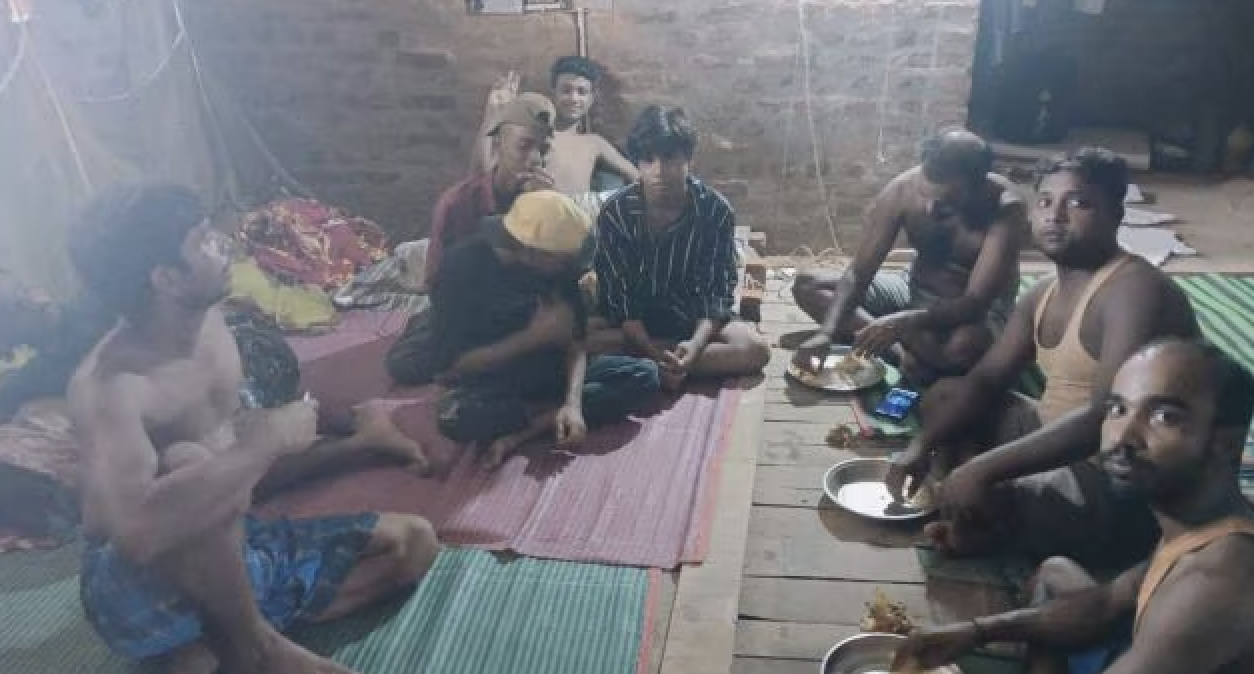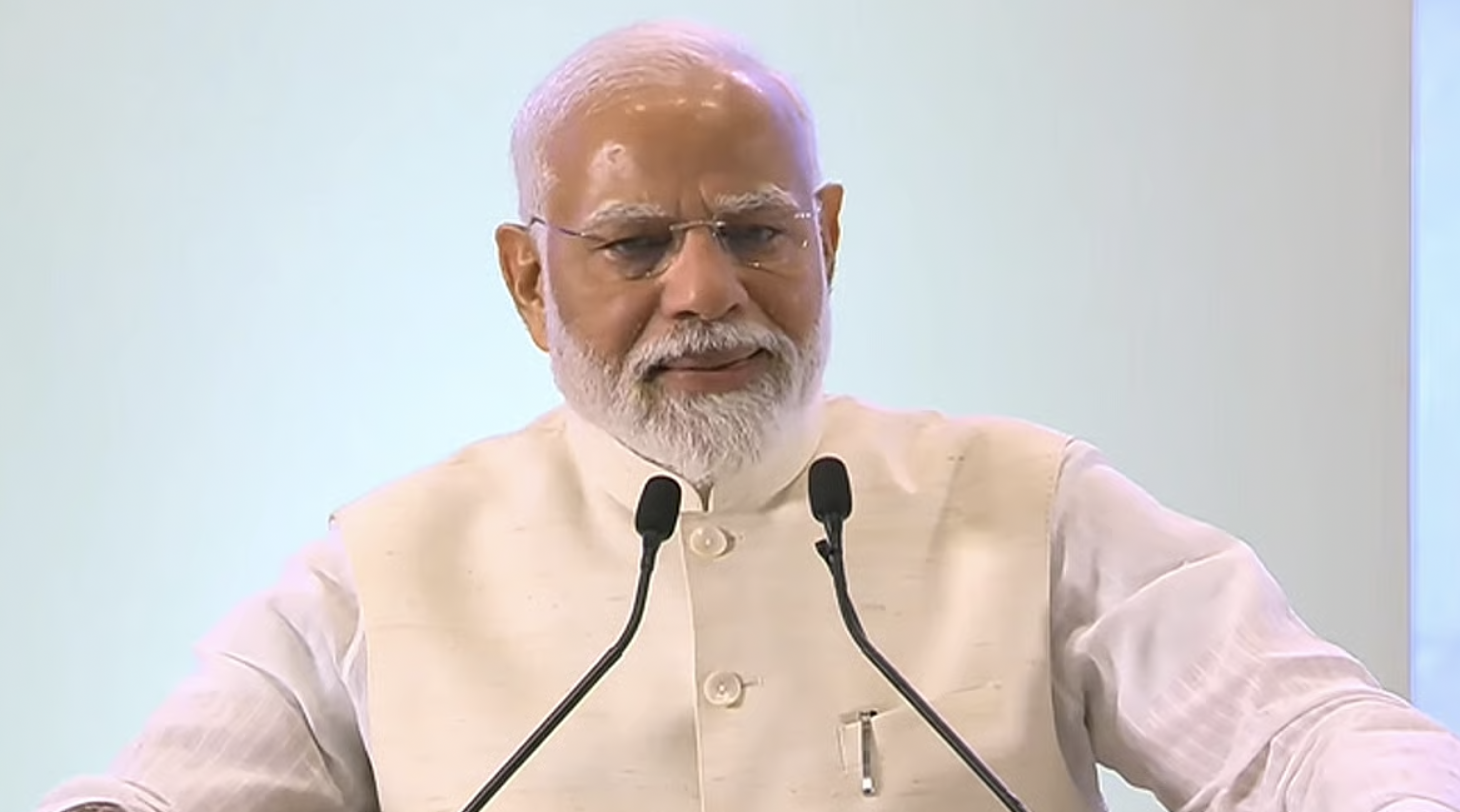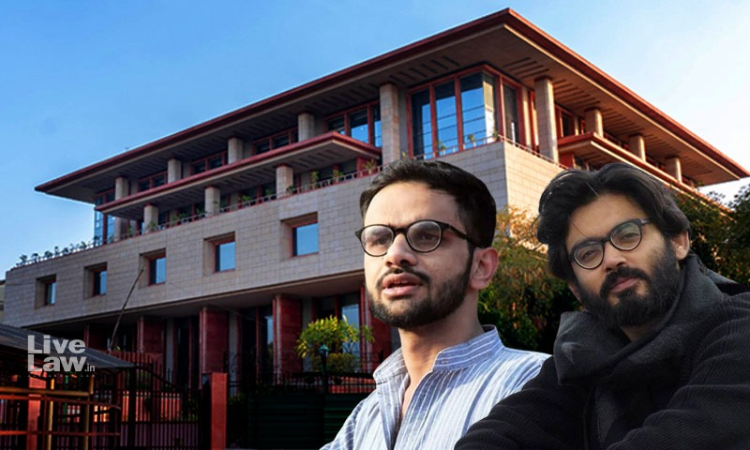
By Haritha John & Jisha Surya
Over the last week, the owner of a popular shawarma joint in Kerala’s Thiruvananthapuram had been receiving unexpected queries from his customers. They were enquiring about the religion of his staff members. He soon realised that it was the effect of a renewed hate campaign against Muslims; this time, it centered on the claims of “spitting” into food. The shop owner, who did not wish to be named, said that he obviously knew it was a hoax. While previously, he had never felt the need to address such things, this time he said, “My staff members, who faced these questions, belong to different religions.”
Karthik Manikuttan, a Thiruvananthapuram-based food vlogger, had to block the tag ‘thuppal’ (spit) on the video posts after he noticed targeted hate messages against Muslim-owned hotels that he documented on his vlog. “I suddenly found comments like ‘Thuppal Shawarma,’ ‘Thuppal Biriyani,’ especially under videos on hotels with Muslim names,” he said. “Several hotel owners and social media influencers with Muslim names feel threatened by the targeted campaign against them.”
The latest hate campaign against Muslims, which Karthik and the shawarma shop owner referred to, began in early November when a video of a Muslim man supposedly spitting into plate of rice and then mixing it with rest of the rice in a cooking pot, went viral. Many shared the video in Kerala, claiming the man was spitting into the food. Debunking the claim, AltNews said that the man, a maulana (a religious leader), was not spitting but blowing into the food as part of a ritual on Uroos (an Islamic event on the death anniversary of a religious leader). The Uroos event was held at Tajul Ulama Dargah in Kerala.
Incidentally, this isn’t the only such video. Several other videos of Muslims blowing into water and food items have persistently emerged from Kerala.
Even as many expressed shock over such videos, many Muslim clerics said that the practice of blowing or even spitting is only followed by a section of clerics during religious ceremonies, and that too, in private occasions. In fact, Dr Suhaib Moulavi, the Imam of the Palayam mosque released a statement saying that the Prophet has said one should not even blow into food, he also denounced those clerics who blow into food.
Many, however, gave short shrift to such explanations or justifications. The latest viral video reignited the hate campaign targeting hotels owned by Muslim management in Kerala.
Interestingly, it wasn’t Hindutva organisations but radical Christian groups that allegedly started this campaign. Facebook pages such as ‘Soldiers of Cross’ put messages and lists of Kerala hotels that serve “spit-free food.” Such lists include hotels owned by Hindus or Christians in Muslim-majority Kozhikode district, including Paragon, Arya Bhavan and Vasantha Bhavan. In fact, both the Christian and Hindutva groups have been actively circulating a district-wise and even area-wise list of “spit-free hotels” on WhatsApp groups.
.jpg)
A screenshot of another message circulated by Soldiers of Cross lists Hindu- Christian owned hotels in Kozhikode.
According to T Muhammad Velam, a consultative committee member of Jamaat-e-Islami (an Islamic organisation), “It is clearly mentioned in Islam not to blow into food or water, even if it is hot. There are certain practices of uttering prayers and blowing, but that has no connection with food. Even if some holy men do, it is part of some ceremony, where only believers take part. It’s part of the sacrament, not a public practice.”
‘No question of spitting into food’
On one hand, Muslims-owned hotels that serve Halal meat have become the targets of right-wing and some Christian groups. On the other hand, the Hindu-owned hotels featured in the list of ‘non-Halal-spit-free foods’ are now targets of a reverse campaign. A section of Muslims has called for the boycott of such hotels.
The Kozhikode-based Paragon hotel, which featured in the ‘spit-free hotel’ list, faced the threat of boycott from some Muslim groups. The Paragon management was forced to issue a statement saying they were not party to the campaigns that aim to create communal divisions in society. Speaking to TNM, Paragon’s Managing Director Sumesh Govind said that the list was prepared without their knowledge or consent. “Religion or caste has never been a concern in the last 83 years since we started our business. We have been buying meat products from the same Muslim-owned firms all these years. Except Kozhikode, all our branches have Muslim partners,” he said.
Sumesh said they have filed a complaint with the cyber cell for the targeted campaign. He, however, said that this has not affected the business yet.
Owners of Hindu hotels appeared more at ease as they openly issued statements or spoke to the media. Muslim hotel owners, however, either chose to remain anonymous or refrained from mentioning the names of their establishments, fearing that the latest campaign against them would harm their businesses. However, both Hindu and Muslim owners denied allegations of spitting into food.
Since the issue of “spitting” into food is a hygiene and health concern, the hate campaign against Muslims gained more acceptance across the whole spectrum of society. In fact, the campaign has become much wider and all Halal-certified food items are now being deliberately miscategorised as “food with spit.”
Sumesh from Paragon said, “As per my understanding, Halal merely involves the practice of praying while slaughtering and cutting the main arteries of the animal, to drain out the blood. There is no question of spitting into the cooked food in any commercial restaurants.”
Kasaragod-based restaurant owner Muhammed Ali Haji said that he is a devout Muslim who allows only Halal products in his restaurants. He termed the ongoing controversy over spitting as a new form of hatred. “I pray five times daily, have gone for Hajj and never broken the laws of the religion. Obviously, I have a Halal board outside my restaurant,” he said.
Ali explained that he doesn’t use alcohol, pork meat or meat of animals that die before slaughtering, in his restaurant. “I make sure that blood is completely washed out before cooking the meat. I also buy Halal-slaughtered meat. All these make my food Halal. But I haven’t seen anyone spitting into the food,” he said. “Hatred can come around in any form of lies,” Ali Haji added.
According to T Muhammad Velam of Jamaat-e-Islami, per Islam rules, Muslims are not allowed to consume certain items such as alcohol, blood, pork meat etc. “For meat, the animal must be slaughtered by its neck, in the name of Allah,” he said, adding there is no particular process or ritual to make food or other items Halal. “For us, food prepared by any religious person, even an atheist, is Halal,” he said.
Over the past few months, right-wing groups have been questioning the Halal boards placed outside many hotels in Kerala. They have also objected to the Halal certification on other food items such as rice and oil.
One such post doing the rounds lists out five oil brands and names the Muslim proprietors running the companies. “These Jihadi, Halal contaminated oils should not enter our temples or homes,” the incendiary post read.
As the right-wing rallied against the so-called ‘Halal invasion’ in Kerala, another controversy erupted over the supply of Halal-certified jaggery to the Sabarimala temple. The sangh-parivar backed Sabarimala Karma Samithi took the matter to court. On Monday, November 22, the Kerala High Court, sought an explanation from the Travancore Devaswom Board and the Food Safety Department over the use of Halal-certified jaggery for preparation of ‘prasadam.’ The petitioners argued that it was age-old practice to use Satwik products for preparation. The government has however said that the Maharashtra-based company which supplies jaggery to Sabarimala, also exports it, which is why they have a Halal certification.
Many entrepreneurs TNM spoke to said that certain products manufactured in India have the Halal certification as these are also exported to the United Arab Emirates and other Gulf countries, where a Halal certificate is mandatory. Halal certification is not restricted to food items, but cosmetics and other essential products too, where they should neither contain any ingredients prohibited in Islam nor come in contact with substances such as pork and alcohol.
Per the Islamic faith, such practices mean that the food is hygienic, healthy and in accordance with the teaching of the Quran and Sunnah.
Christian and right-wing propaganda?
Over the past few years, a few Christian groups have been displaying a growing intolerance of the Muslim community. This shift became most visible when the Bharatiya Janata Party (BJP) started the infamous campaign against ‘love jihad’ in which they alleged that Muslim groups were running organised programs to marry and convert Hindu women to Islam.
In January 2020, chief Cardinal Mar George Alencherry of the Syro Malabar Church issued a “love jihad” circular in which he said, “Christain women from Kerala are even being recruited to Islamic State through this.”
Pala archdiocese’s Bishop Mar Joseph Kallarangat said at a function in September that non-Muslims in Kerala are targeted with “narcotics jihad”, a project to lure women and turn them into drug addicts. Social relations were further strained in June when a group of Christian youths made several disparaging comments about the Muslim community on the conferencing app ClubHouse.
Read: Communalism in Kerala: A conversation with historian Michael Tharakan
Joy Abraham, a member of CASA, said they have been campaigning against the ‘Halal invasion’ in Kerala for the last two years. (This group is a smaller organisation and different from CASA [Church’s Auxiliary for Social Action] which is a humanitarian and development arm of 24 Protestant and Orthodox churches in India).
“For the last few years, Arab food culture has massively invaded the state. Being citizens of India, we cannot allow this to happen. Muslim food manufacturers are getting reservations in the name of ‘Halal’ certification while others are denied opportunities. For example, manufacturing a ‘Halal’ certified product requires the company to employ at least 10 members from the Muslim community. We are against this invasion of a particular culture,” said Joy.
Posters calling for boycott of products from companies owned by Muslims
BJP state president K Surendran alleged that the ‘phenomenon of Halal’ spread at a fast pace in Kerala. “It is a planned attempt to divide people and create communal riots. If other political parties cannot, BJP definitely can identify the communal agenda behind the Halal culture,” he said.
On Sunday, November 21, the BJP had called for a ban on the practice of Halal certification and Halal boards at Kerala hotels. In a press conference, BJP state general secretary P Sudheer equalled ‘Halal’ to triple talaq. “By giving a religious face to Halal, religious fanatics are attempting to implement their communal agenda in Kerala,” he said.
However, another section of BJP leaders, decried communalising the ‘Halal’ issue. BJP Kerala spokesperson Sandeep G Varier had put up a Facebook post supporting the hotels in the Halal row. He later had to remove the post after Surendran reiterated the party’s stand against Halal food in the backdrop of Sabarimala jaggery row. In the now deleted Facebook post, he had said, “Hindus and Muslims cannot survive by economically boycotting each other.
Activist Rahul Easwar, who had agreed with Sandeep, told TNM that the ongoing controversy was a ‘politics of othering.’ “Next to the main shrine in Sabarimala, there is an Islamic shrine for deity Vavar, where no idol is kept. This is to convey that ‘we will respect you in the way you want us to respect you.’ This is the plural framework of India,” he told TNM.
“All kinds of jihads (‘love jihad’, ‘dance jihad’, ‘Halal jihad’) come from a deep spiritual vacuum inside a Hindu’s mind. This is politics of othering and clear Islamophobia,” Rahul Easwar added.
Impractical to follow religious practice in hotels
The rise in price of essential commodities and cooking gas came as a major setback at the time when the hotel and restaurant industry has been trying to recover from the pandemic-induced financial trouble. The ‘spit’ controversy is a nail in the coffin.
Kerala Hotel and Restaurants Association general secretary G Jayapalan said that they have filed petitions with Chief Minister Pinarayi Vijayan and Director-General of Police (DGP) Anil Kant, demanding action against the communal campaign.
“In Kozhikode district, a community has been campaigning, urging the public to dine only from a particular list of hotels while another community campaigns against it. It is unfortunate that police have failed to take action against communal hatemongers,” the petition read.
“Be it a ‘vegetarian’ board targeting Sabarimala pilgrims or the ‘Halal’ board for Muslims, the hotels just have only one aim – business. If anyone proves that spit is mixed into cooked foods as part of any religious practice, our association will be the first to take action against such hoteliers,” Jayapalan said.
“Various religious practices exist in our place, but is it practical to use it in commercial institutions? Some communities won’t allow women to cook during a particular time (when they are menstruating). But can that be followed in a restaurant? All restaurants in Kerala follow norms of the Food Safety and Standards Authority of India. Nobody can function in any unhygienic condition,” Jayapalan added.
Meanwhile, the Food Safety Department officials told TNM that they have decided not to intervene in the politically-motivated issue. “The department conducts regular inspections and takes samples for testing. No issue of spitting into food has come to our notice,” said an official.
This story first appeared on thenewsminute.com






